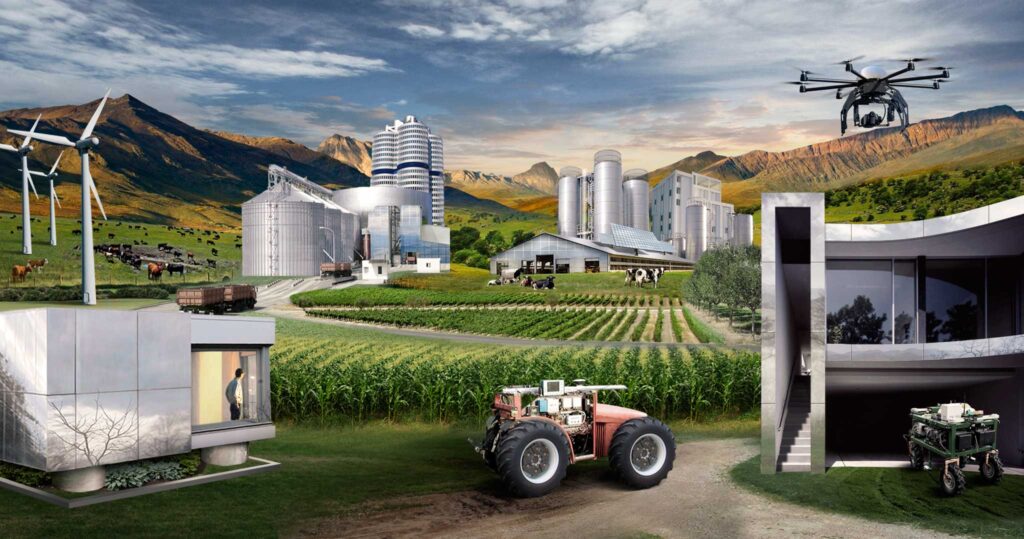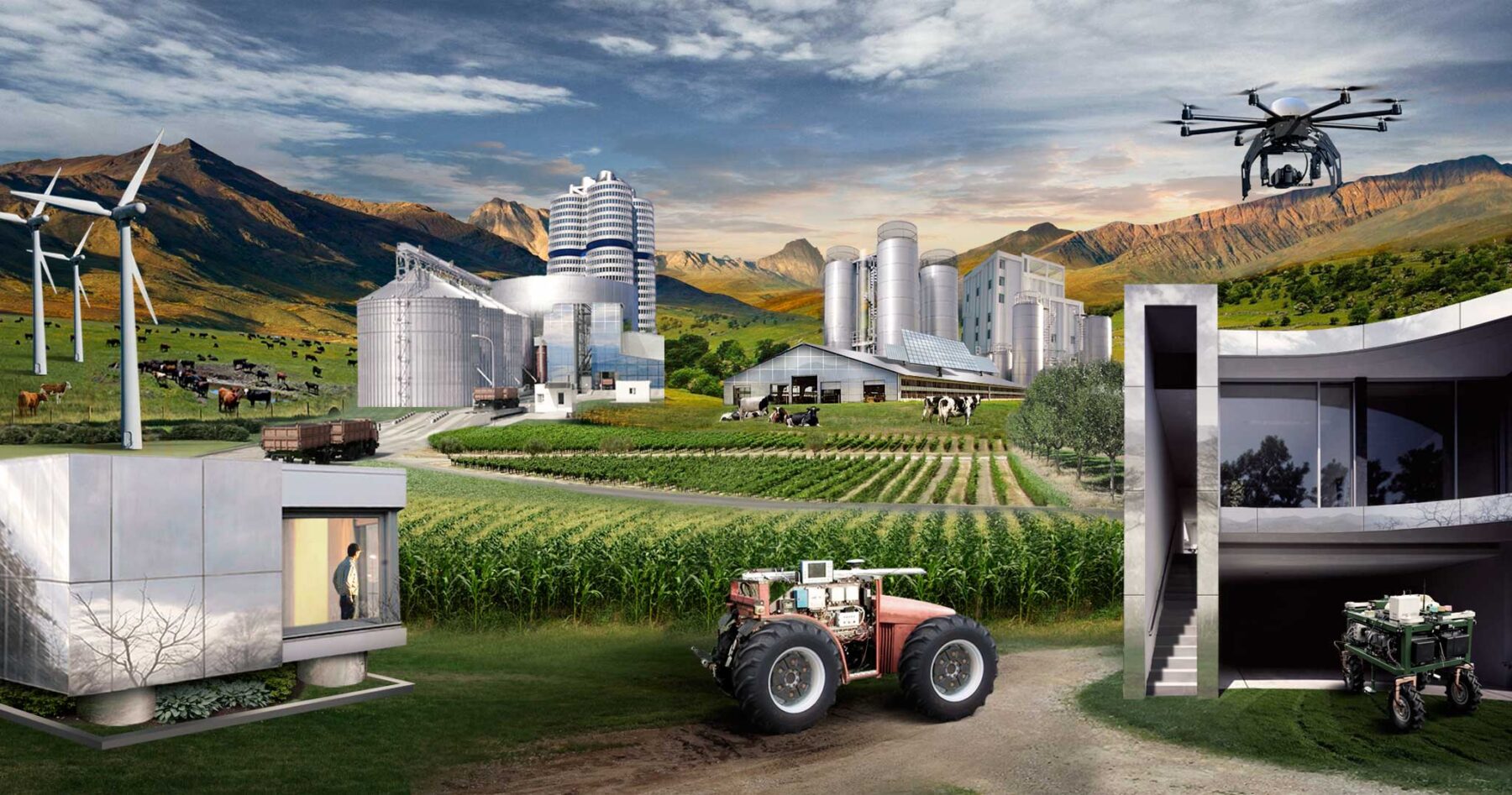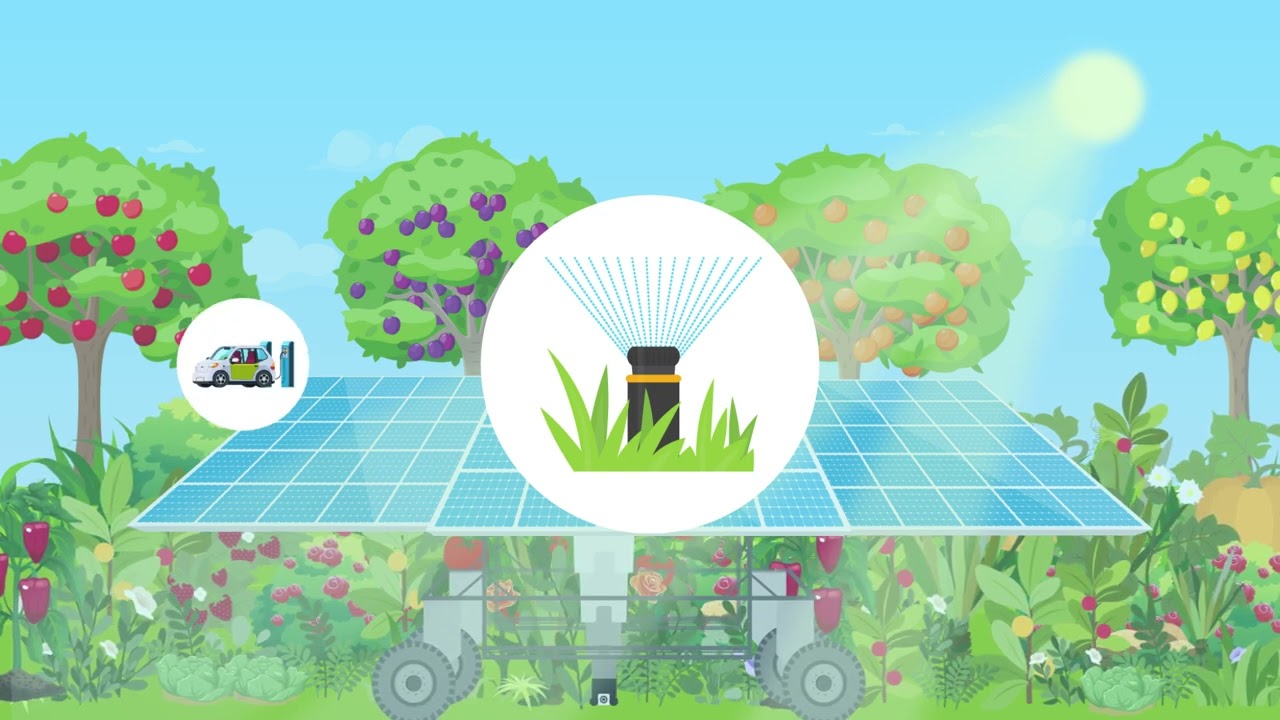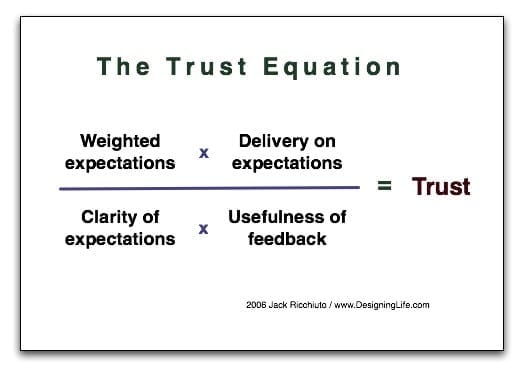
Though just down the road from each other, the country’s tech capital and one of the country’s largest farming regions are only now starting to work together—with only a little culture clash.
It’s 2020. Drones are flying over the tomato plants, taking constant quick snapshots of the field to look for problems. A stream of ultra-accurate weather data informs crop decisions, while a handheld pathogen detection system sets off alerts for diseases in the field in a matter of minutes. The whole farm is hooked up to a massive outdoor wireless network, to ensure that no swath of land is ever left unconnected. Somewhere around here is a farmer.
Silicon Valley has a lot to offer the growing number of farmers who rely on high-tech solutions. But while Palo Alto and California’s Central Valley, the place where much of the country’s produce is grown, are just a few hours’ drive from one another, the cultural gap is incalculable. If farmers and tech entrepreneurs can find common ground, our food supplywill benefit.
Ashwin Madgavkar, the founder of a startup called Ceres Imaging that uses aerial photography and spectral imaging to keep track of water stress and nutrient content in crops, has mostly figured out how to navigate that cultural gap. But it took some time.
“At first, when I approached farmers, it was more for advice—asking about decisions they made on the farm and how we could influence those decisions,” he says. “Farmers are simple at the end of the day in that if you can provide a product that will make more money than it costs them, then they will buy it. The biggest challenge is that farmers are busy—you have to really convince them it’s worthwhile.”
Agriculture is a huge industry in the U.S., and precision agriculture—the practice of using sensors, software, analytics, and drones to micro-manage crops—is a growing part of it, with a market size estimated to be up to $2 billion (and rising fast). Entrepreneurs and big companies alike are salivating; Monsanto recently bought San Francisco-based weather analytics company Climate Corporation for $1 billion, and a number of agriculture technology startup incubators and funds, including Farm2050, have started popping up in the region.
If you can provide farmers a product that will make more money than it costs them, then they will buy it.
Read more: Silicon Valley Meets America’s Salad Bowl To Create The Farm Of The Future
The Latest on: Farm Of The Future
[google_news title=”” keyword=”Farm Of The Future” num_posts=”10″ blurb_length=”0″ show_thumb=”left”]
via Google News
The Latest on: Farm Of The Future
- Loddington Farm in Boughton Monchelsea, Maidstone, opens shop to diversify business after grubbing 80% of apple orchardon May 4, 2024 at 6:00 am
A fifth-generation fruit farmer has grubbed 80% of his orchard, saying apples simply don’t make money any more. James Smith’s family has owned Loddington Farm for nearly 150 years, but he is now ...
- 'I think it's the future now' - villagers give views on solar farms after major scheme's approvalon May 3, 2024 at 9:00 pm
Use precise geolocation data and actively scan device characteristics for identification. This is done to store and access information on a device and to provide personalised ads and content, ad and ...
- The Cannabis Crossroads: How Schedule III and The Farm Bill Intersecton May 3, 2024 at 8:14 am
The intersection of the Farm Bill and Schedule III. What it means. The future of OTC THC consumption is low-dose THC products. Hemp could be the future of adult use.
- Ancient farm practice could help sustain future humans on Marson May 1, 2024 at 11:00 am
This ancient agricultural technique may increase yields of some plants on the Red Planet.
- The Future Of Behavioral Healthcare For Farmerson April 30, 2024 at 8:00 pm
Congressional approval of a new Farm Bill is still on hold as I write this in mid-April 2024. The delay is keeping farmers on edge, along with the people who ...
- Community members fight for the future of Southside’s urban farmon April 30, 2024 at 4:51 pm
A March 27 proposal to the board of commissioners of the Housing Authority of the City of Asheville called for the demolition of Southside Community Farm to make way for a $200,000 outdoor youth play ...
- Innovating For Tomorrow: The Future Of SQL Server Farm Migrationon April 30, 2024 at 4:30 am
A key step to enable AI is the ability for an organization to move legacy assets (i.e., enterprise data) to the cloud and get it "AI-ready." ...
- Hawks and Honeywell Announce Winners of Arena of the Future Challengeon April 26, 2024 at 11:45 am
Honeywell (NASDAQ: HON) and the Atlanta Hawks today celebrated students participating in their inaugural Arena of the Future Innovation Challenge at State Farm Arena.
- The Inland Empire’s last goat dairy farmer faces a precarious future after he was robbed of a dozen goatson April 24, 2024 at 11:11 am
The Drake family has been farmers for generations. Now one goatherd faces an uncertain future in Southern California.
- Kentucky Farm Bureau Initiative Addresses Loss of Farm Acreage Across the Stateon April 23, 2024 at 5:00 pm
The KFTI is a strategic project focused on helping farm families find ways to keep their acreage in active agricultural production as they consider the future of that land. The need for efforts like ...
via Bing News










